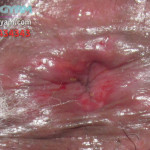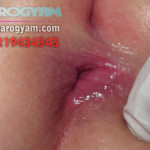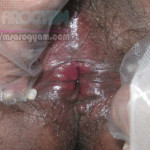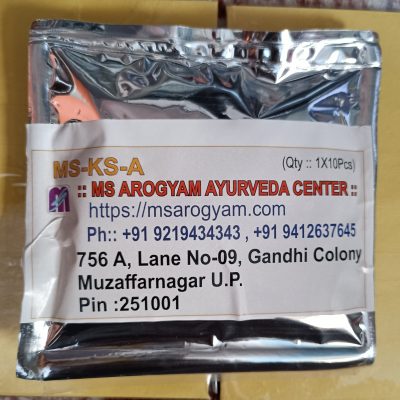Post Contents
What is ANAL FISSURES and Treatment
What is a fissure?An anal fissure is a small tear in the skin that lines the anus. An anal fissure may occur when you pass hard or large stools during a bowel movement. An anal fissure typically causes pain and bleeding with bowel movements.Anal fissures most often affect people in middle age, but fissures also are the most common cause of rectal bleeding in infants. Most anal fissures heal within a few weeks with treatment for constipation, but some fissures may become chronic
COMMON CAUSES OF ANAL FISSURES
- Anal fissures can be caused by trauma to the anus and anal canal. The cause of the trauma can be one or more of the following:
- Chronic constipation
- Straining to have a bowel movement, especially if the stool is large, hard, and/or dry
- Prolonged diarrhea
- Anal stretching
- Insertion of foreign objects into the anus
- Other causes of anal fissures (other than trauma) include:
- Longstanding poor bowel habits
- Overly tight or spastic anal sphincter muscles (muscles that control the closing of the anus)
- Scarring in the anorectal area
- Presence of an underlying medical problem: such as Crohn’s disease and ulcerative colitis; anal cancer; leukemia; infectious diseases (such as tuberculosis);
- and sexually transmitted diseases (such as syphilis, gonorrhea, Chlamydia, chancroid, HIV)
- Decreased blood flow to the anorectal area
SYMPTOMS OF ANAL FISSURE
- Signs and symptoms include:
- Pain during, and even hours after, a bowel movement
- Constipation
- Blood on the outside surface of the stool
- Blood on toilet
- A visible crack or tear in the anus or anal canal
- Burning and itch that may be painful
- Discomfort when urinating, frequent urination, or inability to urinate
- Foul-smelling discharge
RISK FACTORS FOR ANAL FISSURES
- Factors that may increase your risk of developing an anal fissure include:
- Infancy. Many infants experience an anal fissure during their first year of life, although experts aren’t sure of the reason.
- Aging. Older adults may develop an anal fissure partly because of slowed circulation, resulting in decreased blood flow to the rectal area.
- Constipation. Straining during bowel movements and passing hard stools increase the risk of tearing.
- Childbirth. Anal fissures are more common in women after they give birth.
- Crohn’s disease. This inflammatory bowel disease causes chronic inflammation of the intestinal tract, which may make the lining of the anal canal more vulnerable
- to tearing
PREVENTION OF ANAL FISSURES
- For fissures in adults:
- Keep the anorectal area dry
- Wipe the area with soft materials, a moistened cloth, or cotton pad; avoid rough and scented toilet paper
- Promptly treat all occurrences of constipation and diarrhea
- Avoid irritating the rectum
Treatments available for Fissures :
- Surgical sphincterotomy — can cause fecal incontinence. This has led to the investigation of nonsurgical treatment options that avoid permanent damag
- with topical nitroglycerin and pneumatic dilatation — results are same as topical nifedipine and botulinum toxin injections
- The combination of nifedipine and botulinum toxin was superior to nitroglycerin and pneumatic dilatation.
- Ayurvedic Medicinal treatment for fissure —
- it is better compared to general treatment available for fissure as it have higher rate of healing and has success rate of above 99% for Anal Fissure Patients.
- Kshar Sutra Ligation — it has all the benefits of Surgical sphincterotomy without any risk and complication of incontinence , it is recommends only if the medicinal treatment is not responding like any other surgical process first choice is medicine.
AYURVEDA TREATMENT FOR ANAL FISSURES
- Ayurveda advises internal medication as well as topical ointment application in the treatment of anal fissures.
- To avoid further irritation to the damaged tissue, medicines which soften the stools and promote healing of the tissues are utilized.
- Ointments which are natural anti-bacterial and anti-septic are used for topical application.
- Our MsPak-B is best for fissure treatment as it a complete treatment with all possible way ans best result as compared other medicines available in market
- because we create the main medicine by own with max possible result .
- our patients most of the time healed with our medicinal treatment , only if 1% the fissure dose not heals within 2-4 month of treatment then i suggest for Kshar
- Sutra Ligation for Fissure as it dose not have any risk of incontinence like sphinctrectomy , and kshar sutra is safest process then any other processes.
COMPLICATIONS OF ANAL FISSURES
- Complications of anal fissure can include:
- Anal fissure that fails to heal. An anal fissure that doesn’t heal can become chronic, meaning it lasts for more than six weeks.
- Anal fissure that recurs. If you’ve experienced anal fissure once, you have an increased risk of another anal fissure.
- A tear that extends to surrounding muscles. An anal fissure may extend into the ring of muscle that holds your anus closed (internal anal sphincter). This makes it
- more difficult for your anal fissure to heal. An unhealed fissure may trigger a cycle of discomfort that may require medications or surgery to reduce the pain and
- repair or remove the fissure.











Hello Dr. Dheeraj i am having a lot of pain inside my anal canal in the middle of night when asleep. I don’t understand why this is occurring and this pain is some times for a few minutes or lasts for at least a half hour or so. What would you recommend that i should do?
Hello George , go to surgeon he will help you to find the cause and the treatment.
Good evening Yadav Sir,
Kindly provide me your address. I want to show my anal fissure problem plz.
I felt itching at anus 5 years, I thought it is a simple itching but after 1 year i knew about it. Then I went to Jai Singh Bawasir Hospital Dadri June 2013 . Doctor gave injection after it I am feeling so pain I have MRI report also. Kindly give me your Appointment Address
Dear Doctor,I’ve been having anal fissures along with sentinel piles.Though am correcting my constipation yet there is pain because my fissure is taking long to heal.Where can I buy your medicines.kindly advice
just go to our site shop page or directly to this link Ms-Pack-B and just add the product to cart and complete the process make the payment by paypal or direct bank wire.